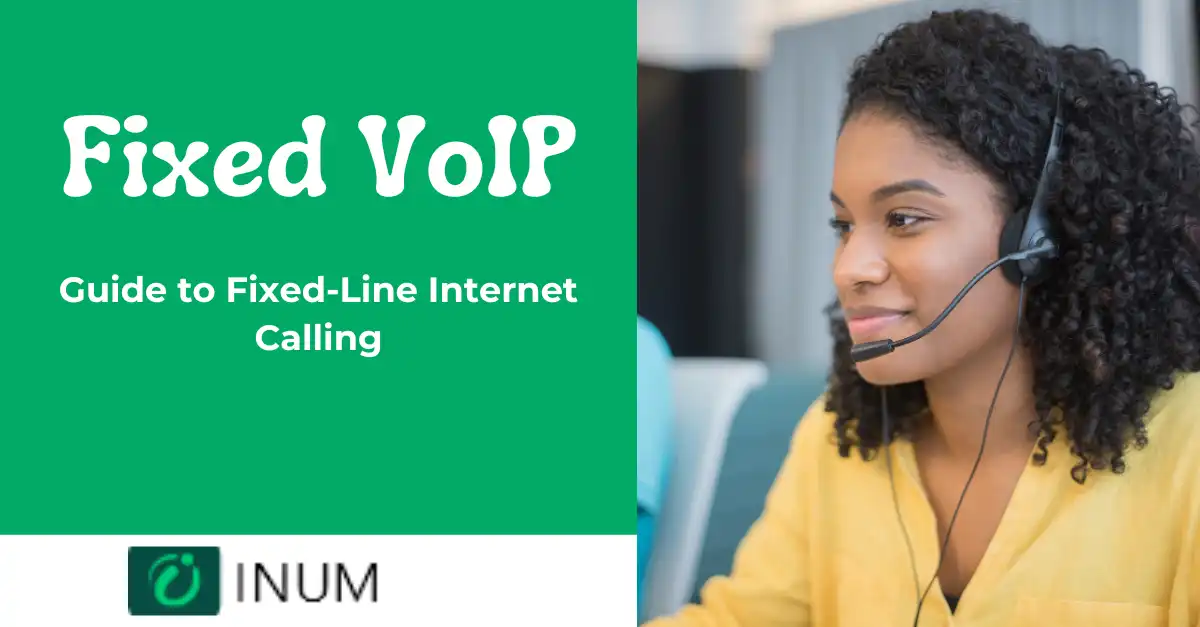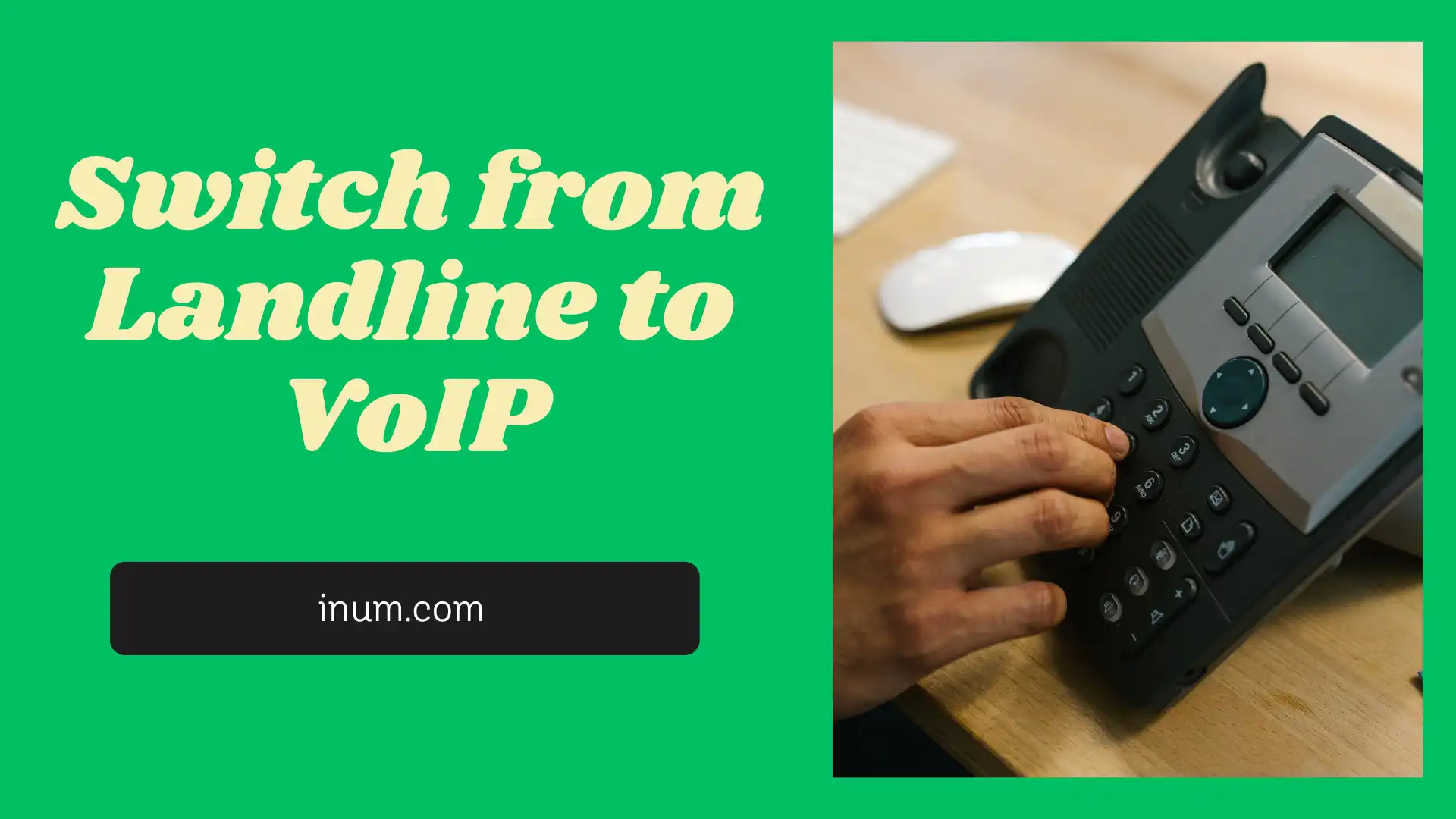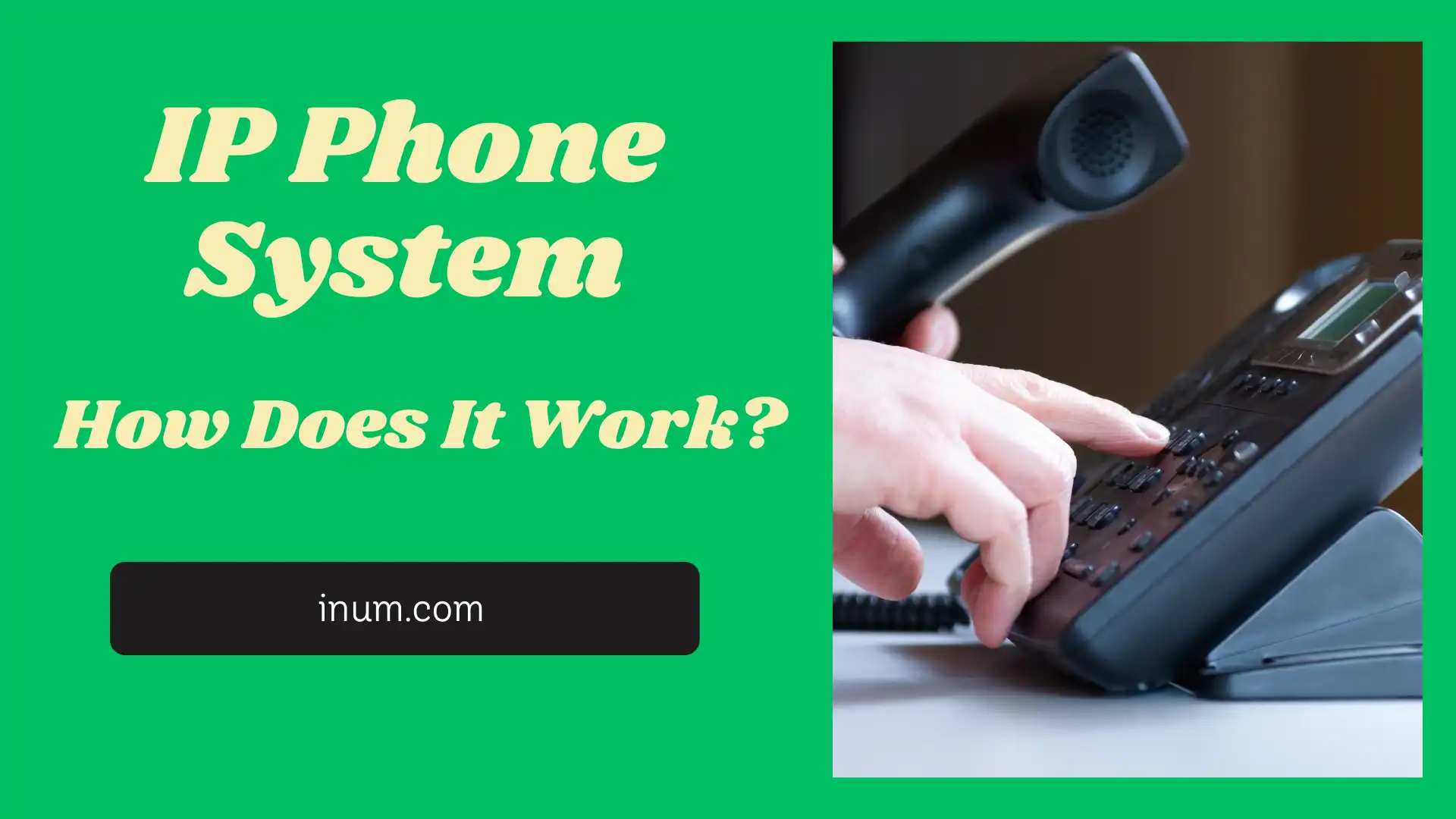The right phone system is the first step towards getting your business reliable phone service. Voice over Internet Protocol (VoIP) is an affordable method of making and receiving of phone calls.
However, there is one more important choice, which is whether to use a fixed or non-fixed VoIP phone system. Regarding the phone lines of your business, there exist some interesting distinctions between non-fixed and fixed VoIP services.
To be brief, it can influence response times of emergency services, yet there is a simple way to guarantee that your virtual number is secured.
This blog will discuss in detail what is fixed VoIP phone number is.
What is a Fixed VoIP Number?
Fixed VoIP number is a phone number that calls through IP but is associated with a physical address on the street. Fixed VoIP numbers are usually allocated by your VoIP service provider and calls are made with the help of the Internet to any number mobile, landline or other VoIP numbers.
In addition to being associated with a physical place, fixed numbers normally operate on a SIP trunk to interconnect with the VoIP service provider, allowing calls to be made by use of PSTN landline or Internet-based VoIP.
The fixed VoIP numbers just like the traditional landline business phone systems need to have a specific address which in most cases is the home or a company office. This address will have to be offered by accounts prior to the service provider assigning them a fixed VoIP number.
Fixed VoIP numbers are perceived as authentic and reputable because they are identified with the street address of an account owner. VoIP providers, in their turn, tend to offer support to 911 calls and emergency calls on the lines that are based on fixed VoIP more than non-fixed ones that lack address on file to guide first responders.
How Does Fixed VoIP Work?
Although a VoIP number can be used like a conventional phone number, its use is restricted by a factor.
VoIP numbers comes with capabilities which a regular number does not have. Despite the fact that a fixed VoIP number has a connection to the PSTN, the fixed VoIP phone number primarily relies on the PSTN to determine the address that the phone number will have.
The VoIP phone will not accept a classic RJ11 phone jack (Ethernet cables are more likely to be found), but will accept the PSTN connection somewhere in a building before the signal is handed over to the internet.
Good VoIP service providers strive to reduce the duration that call audio takes on the PSTN. The PSTN is not much of a high-performance network. Ideally then VoIP carriers configure their network in such a way that hops on the PSTN are kept to a minimum. In cases when a call to or call made to a fixed VoIP number is directed correctly, the call will complete one hop on the PSTN at the address where the fixed VoIP number is assigned the remainder of the connection will be provided by the internet.
Difference Between Fixed and Non-Fixed VoIP Numbers
The biggest distinction is that in the case of fixed VoIP lines; you are required to have a physical address and a local presence to connect to the phone number.
Other differences also exist, such as local and international calling plans and prices, yet they vary radically across business VoIP providers. Also do your research and read the fine print because there are those who will charge you on things, such as porting numbers or other services such as call recording, and others will come free.
When to Consider Fixed VoIP?
The use of a fixed VoIP phone number is not an all-purpose solution, but fixed VoIP phone number is certainly the most suitable choice in some situations. Here are some examples:
i. Physical Business Location Primary Phone Numbers
Although you may also have a number of phones in your building with non-fixed VoIP phone numbers, it would be wise to have at least one fixed VoIP phone number in each business location.
This serves as a contact number of the business to open business accounts with vendors and financial institutions and it is also a sure contact number with emergency services. Also, there can be the local laws, which insist that any physical business location must be identified by a landline or fixed VoIP phone number.
In a nutshell, it would be prudent to have at least one fixed VoIP phone number regardless of whether you are a small business or a large corporation.
ii. Secure Voice Communication
Compared to non-fixed VoIP phone numbers, fixed VoIP numbers are harder to spoof and the connection to the physical location offers a more predictable connection path. Encryption of calls made using fixed VoIP phone numbers is easier (however, a good VoIP provider can also encrypt calls made using non-fixed VoIP phone numbers).
Non-fixed VoIP phone numbers are also capable of making secure calls, but the fixed VoIP phone numbers are more effective in some business fields such as the banking sector and cybersecurity where you require a phone number that has high level of authenticity and security.
iii. Managed Service Providers (MSP)
MSPs offering telecommunication services are recommended to maintain a fixed number of VoIP phones in their stock, or they can arrange with a telecommunication company to provide a fixed VoIP phone number, where a client requires the realism and functionality of a fixed VoIP phone number.
Your MSP will have problems offering such telephony services as emergency calling without access to fixed VoIP phone numbers.
Fixed VoIP Pros and Cons
Fixed VoIP integrates the reliability and dependability of the traditional phone lines with flexibility of the internet based calling. However the same cannot be said of a one size fits all solution, there are some significant drawbacks that accompany reliability as listed below:
Fixed VoIP Pros
- Reputation: Fixed VoIP numbers are not commonly applied to crime and fraudulent calling. Hence, whenever a company applies a fixed VoIP number, the customer, clients, and recipients of the call tend to perceive the company and the number as more authentic and reliable.
- Consistent: Unified fixed VoIP implies that all the calls of a company or a user will be made with the same caller name. This assists the customers to develop a familiar relationship and associate a company using the phone number.
- Reliable 911 calling: Fixed numbers are associated with a particular business address hence phone services find it much easier to detect the location of the user during emergency calls and send in case of 911 calls.
Fixed VoIP Cons
- Difficult configuration: Unlike people can sign up, obtain, and register non-fixed VoIP numbers easily with the use of the VoIP application, fixed numbers often entail a more sophisticated configuration. Fixed VoIP is normally linked to your landline system through a SIP trunk, which requires your IT team to enable this.
- Reduced business presence: Fixed VoIP means your company is limited to your physical address as a caller ID. This implies that even when calling people outside the locality or even abroad, your caller identification will reflect the local number associated with your address.
- More costly: Fixed VoIP lines tend to be more expensive as they are more difficult to install on your part. The fixed VoIP numbers are generally also more expensive for international calls, per minute.
Final Words – Fixed VoIP
Fixed VoIP (Voice over Internet Protocol) is a new communication technology, which enables its users to have voice calls using the internet instead of the normal telephone lines. Compared to mobile VoIP, which can be applied to smartphones or other mobile devices, fixed VoIP generally refers to a special-purpose gadget (e.g., an ATA – Analog Telephone Adapter) that is linked to your home internet service. This service is like the landline telephones but has added features of reduced costs, improved sound quality, and flexibility to incorporate varying internet-supported features, like call forwarding, voicemail, and conference calling.
Under Fixed VoIP, it is possible to make calls to local and international locations, which are usually at much lower costs than traditional phone services. Also, most VoIP services are free among users, so it is a favorite among people who would like to chat as often as possible at affordable rates. Fixed VoIP may serve as a very cost-effective and reliable substitute to a traditional telephone system whether in business or personal use.
FAQs – Fixed VoIP
1) What is Fixed VoIP?
Fixed VoIP is a technology that allows making voice calls via the internet using a fixed location, say a home or office, with the help of a traditional telephone or ATA device. It takes advantage of your internet connection instead of a traditional phone line to communicate.
2) How does Fixed VoIP work?
Fixed VoIP is done by turning voice signals into data packets that are sent over the internet. One device, like an ATA (Analog Telephone Adapter), will connect your regular phone to the internet, and you can make and receive calls just like you would with a regular phone.
3) Does Fixed VoIP resemble the traditional landline phone service?
No, Fixed VoIP does not resemble the traditional landlines since it involves the use of the internet to convey voice calls instead of a physical telephone network. It provides the same service at a lower price and with more features.
4) Is my old phone compatible with Fixed VoIP?
Yes, you are allowed to use your old phone on Fixed VoIP by connecting it to an ATA device, which will convert the analog signals of your phone to digital data, which can be sent via the internet.
5) Do I require special internet connection in Fixed VoIP?
Fixed VoIP is compatible with a broadband and high-speed internet connection of a stable type. A slow connection can still be used to support VoIP, but a faster connection will guarantee a good quality of calls and reliability.
Read More : What Is Voice Over IP Service? Features and Benefits Explained
Read More : VoIP vs. Wi-Fi Calling: Which Is the Best Choice for Your Needs?



